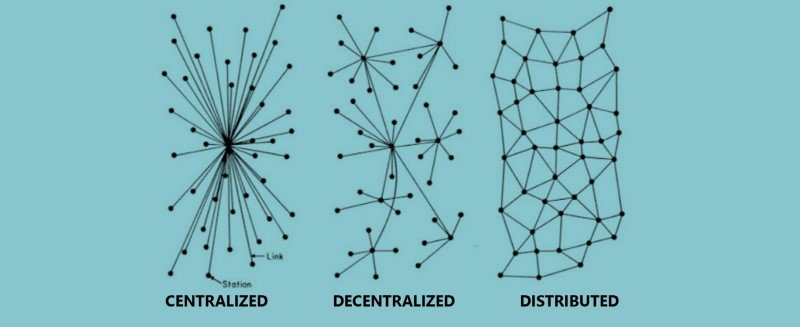Decentralization As The Next Step For Business Evolution

Blockchain technology and the Web3 movement are reinventing the Internet, there are many business models that can be rethought by the blockchain technology. Every company should decide if they want to do it themselves or if the new movement will itself trigger this disruption. The technology acceptance behaves like any trend and can take different forms. The nice thing is that today we can observe how technology drives progress itself. I am convinced that after the first crypto hype, society will be able to draw many benefits from the experience.
Centralization vs Decentralization
Centralization means:
Decentralization means:The decision-making power is made by a single company, government, or individual.
Transfer of the decision-making power and assignment of accountability and responsibility for results. It is accompanied by delegation of commensurate authority to individuals or units at all levels of an organization even those far removed from the center of power.
A fully decentralized system is also referred to as a distributed system. The approaches to decentralized start-ups are primarily seen in the blockchain technology projects.

The decentralized networks and web
The decentralized network describes the networking of computers. In this case, the individual connections are arranged according to no particular scheme, but the individual nodes are interconnected with each other several times. This type of connection creates complex networks that can ensure very stable data transfers with intelligent transmission settings and load distributions. This ensures communication even if one or more connections fail at the same time. Many enterprise infrastructures and also web systems are built in a centralized manner and organized monarchically, the aspiration of the Web3 movement is more to democracy and decentralization.

What are decentralized organisations?
The advantages of the decentralization
The new world of economy is made possible by the blockchain as well as the redesign and fair design of economy. None of us lives forever, why should companies founded by us build a capability that only has the benefit to make even more at the expense of society?
The primary advantage of a decentralized organization is that managers are able to make quick decisions that can save your company money. Further advantages are trustworthiness, resilience and reliability, freedom from censorship, openness to development, the capability of development and economically rational and offer the greatest potential for a social impact.
Disruption is unavoidable
The decentralized future is now
There are already decentralized applications that are based on the new model. Many are experimental, such as Akasha (a social network alternative), DTube (a YouTube alternative) or Steemit (an alternative to Medium), etc. There are also decentralized social security systems such as decentralized pension under development. The Internet Archive, the non-profit organization that archives the web through snapshots of web pages and other media, has made a first attempt to decentralize its website by bringing together many of the technologies.
Conclusion
The time feels again like in the 2000s where Amazon, eBay, and many others started. Where Google overtook Yahoo, where six years later Facebook started, and many others followed. Existing models were represented on the internet; new models were developed on the internet itself. This is how the new decentralization movement feels.
The question remains: Who is implementing decentralization today? If your world is going to be disrupted, better to be the disruptor! Yet again, should we decentralize just to decentralize? The blockchain is not the cure for everything. Centralized systems also have advantages and will likely prevail, but only for specific use cases. It’s important to focus on where blockchain adds actual value to a process and society.
Image courtesy of HR Technologist
About the author:
Paul Mizel is an entrepreneur, enthusiast, inventor, investor and InsurTech specialist. He is also the founder of Asure Network, the first scalable decentralized social security network.